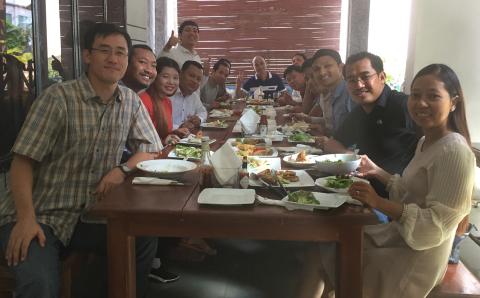Currently on display at the Museum of the Bible in Washington, D.C., is a rare Bible from the 1800s used by British missionaries to convert and educate slaves. This “slave Bible” selectively excluded about 90 percent of the Old Testament and 50 percent of the New Testament. They included passages that reinforced the institution of slavery (such as Eph. 6:5) but omitted passages that spoke of equality (such as Gal. 3:28). It is one of many injustices toward Africans and one reason why Black History month is needed to remind us and help us rise beyond our past failings. It is also one of the clearest examples of deliberate cherry-picking from Scripture to support an agenda.
We too often unintentionally cherry-pick Scripture passages and teachings to confirm our cherished beliefs and positions. Our fallen sinful nature has what psychologists call a confirmation bias. Confirmation bias is the tendency to search for, interpret, favor, and recall information in a way that confirms our preexisting beliefs or opinions. The more emotionally charged or deeply entrenched the belief, the more likely it is that confirmation bias will occur.
In our Internet age we can almost always find information that confirms our opinions and ignores those that discredit them. And social media algorithms constantly recommend a diet of information that aligns with our preferences. This inflates our sense of always being right. People increasingly inhabit different Internet worlds, consuming conflicting information and news and leading to polarized attitudes and opinions.
Thanks to confirmation bias, we Christians may, even unintentionally, focus on biblical passages and teachings that support our opinions and ignore or downplay those that contradict them. Like the aforementioned “slave Bible,” we cherry-pick proof texts and teachings out of context to support an agenda.
Our fallen human nature dislikes being wrong; we subconsciously want to protect our self-esteem. Hence, we are always motivated to prove our opinions and our tribe’s positions to be correct. Our confirmation bias easily kicks in without us realizing it. Combined with our fallen nature’s potency at finding faults in others (finding the speck in our neighbor’s eye) and missing faults in ourselves (the logs in our eyes), we too easily think we are always theologically or biblically right (Matt. 7:3). We accuse each other of deliberately ignoring biblical truths.
We are all biased. And before you think that you are less biased than others, we are all hypocrites too (see “Beware the Yeast of the Pharisees,” p. 10). Are we doomed to biased opinions and intractable beliefs?
I believe we can mitigate our biases. First, we need to cultivate intellectual humility. We must remember the biases of our fallen natures and realize that we may not be as right as we think we are. One of the best ways of cultivating intellectual humility is to identify the faulty reasoning, weak biblical support, and inconsistencies in our own opinions and positions. Find the intellectual logs in our own positions before seeking to find faults in others’.
Second, we need to commit to truly understanding other opinions and positions. Not simply knowing superficial or straw-man versions of them, but understand them well enough to explain them in a way that those who holds them will agree. Seek first to understand then be understood. That’s being intellectually just. Only then will we be able to offer accurate critique.
Third, we need to love the truth more than winning arguments, even if it means being corrected. Submitting ourselves to truth, no matter how painful, is better in the long run. I believe these practices of intellectual humility, justice and submission to truth can help us find common ground.
About the Author
Shiao Chong is the former editor-in-chief of The Banner. He served as editor from 2016 to 2025. He attends Fellowship Christian Reformed Church in Toronto, Ont.
Shiao Chong es el redactor jefe de The Banner. El asiste a Iglesia Comunidad Cristiana Reformada en Toronto, Ont.
시아오 총은 더 배너 (The Banner)의 편집장이다. 온타리오 주 토론토의 펠로우쉽 CRC에 출석한다.
You can follow him @shiaochong (Twitter) and @3dchristianity (Facebook).







